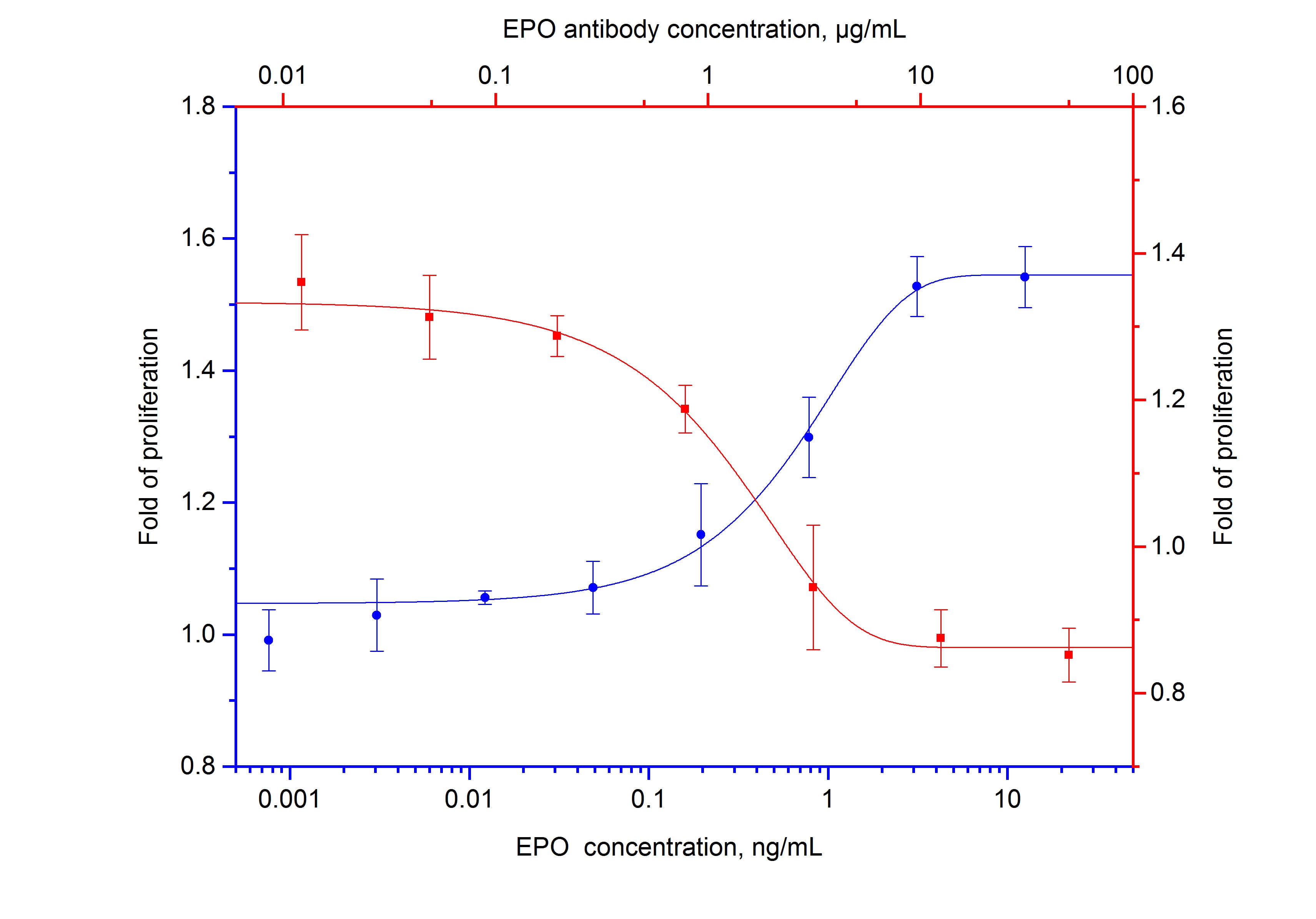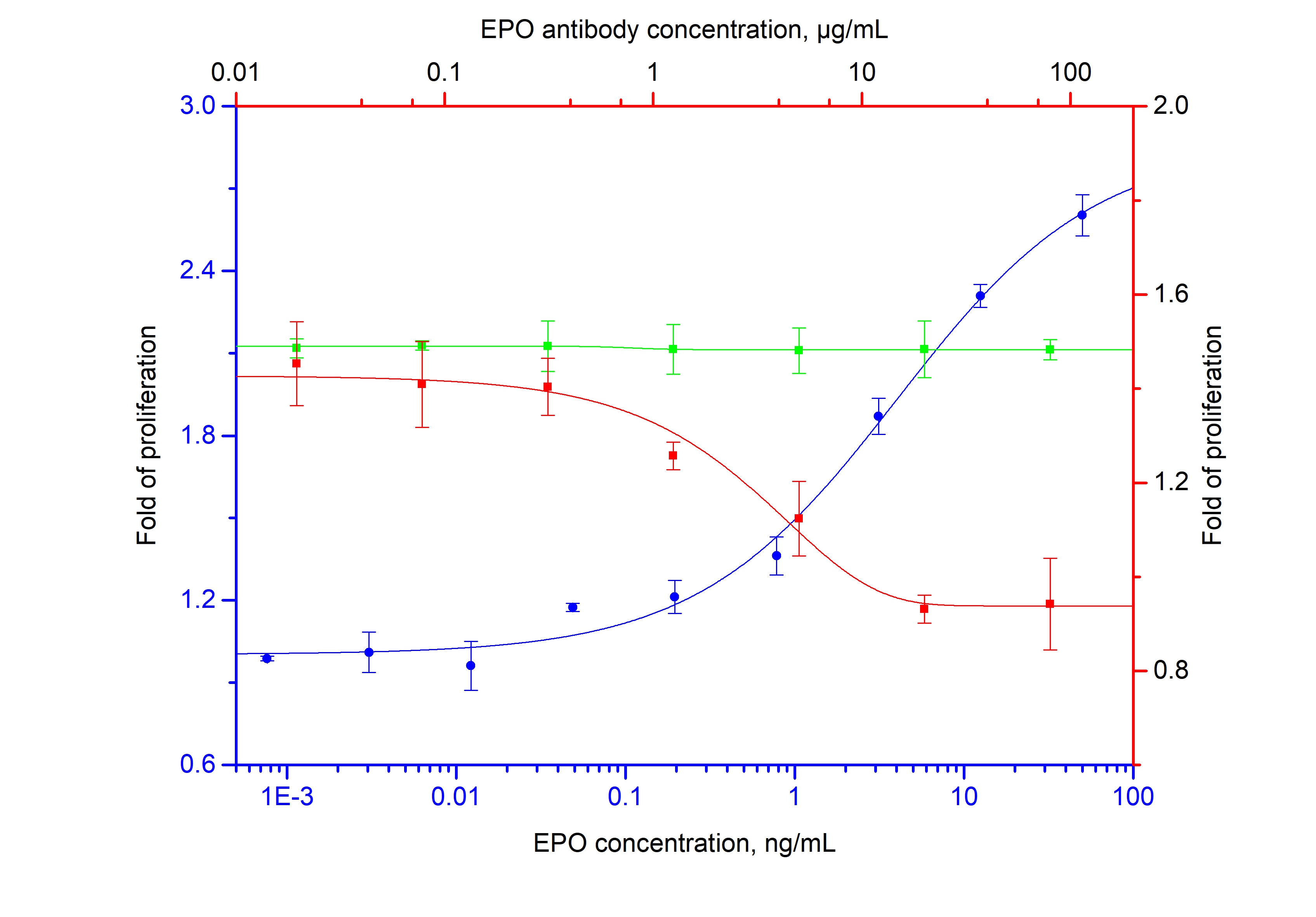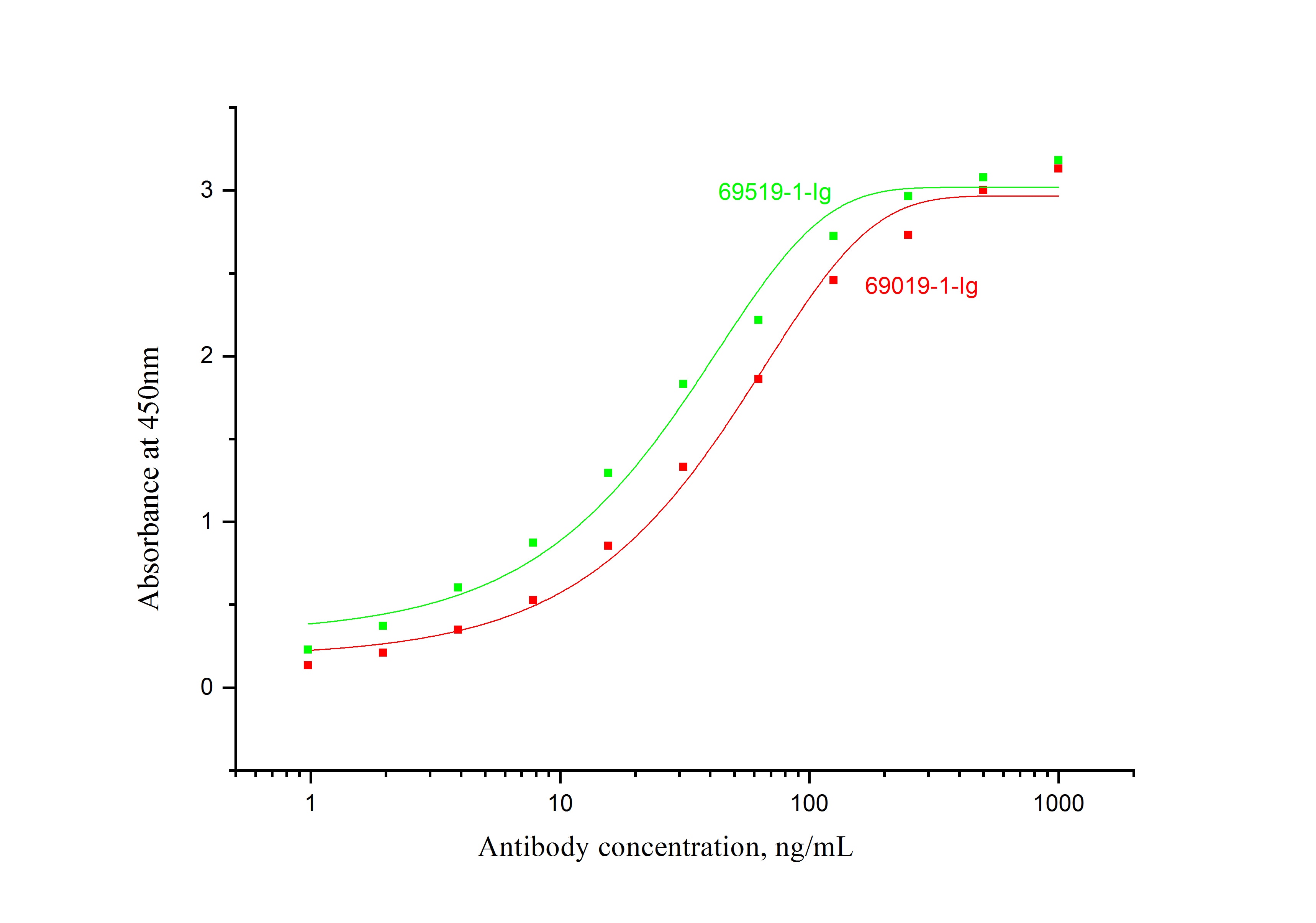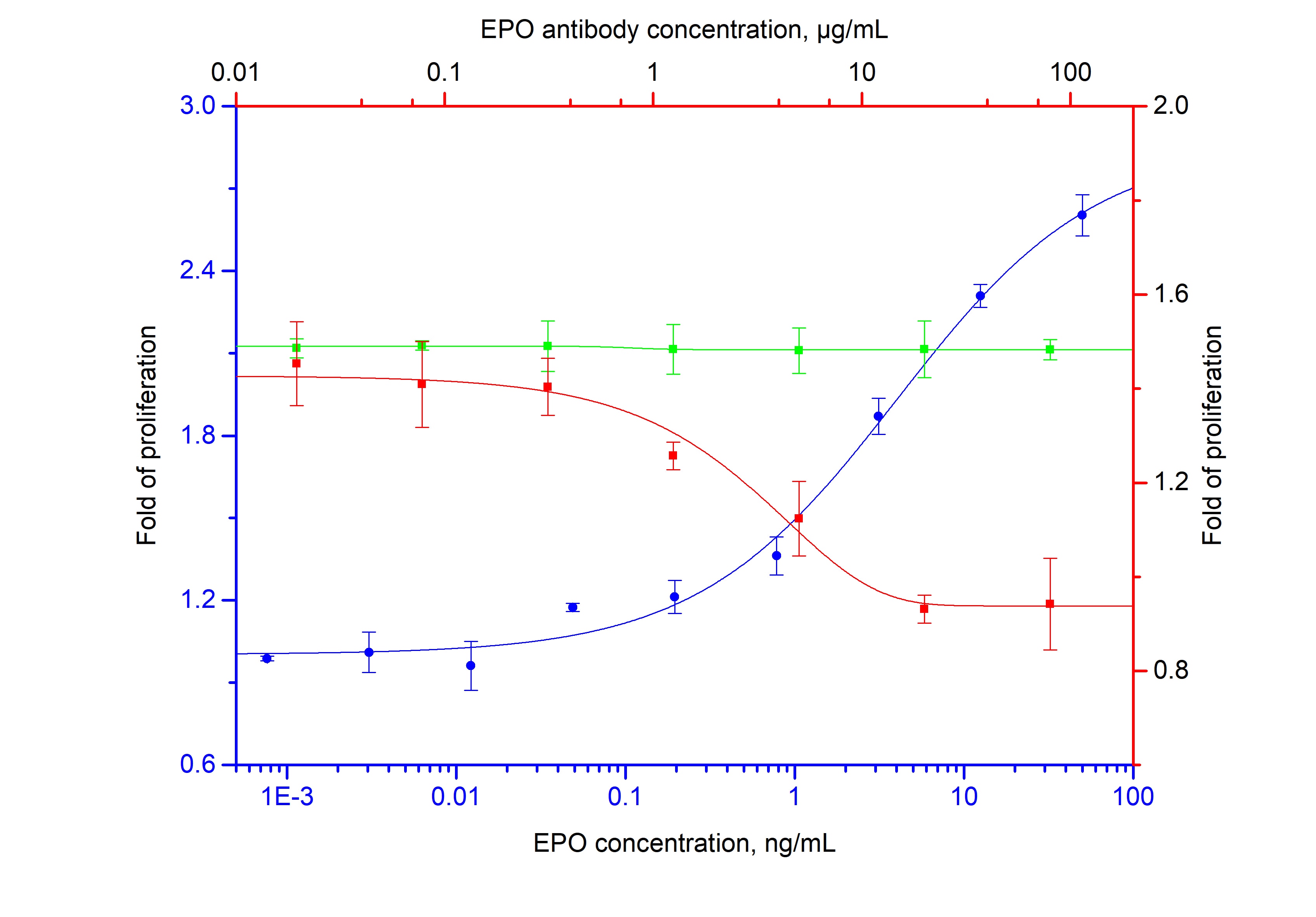Anticorps Monoclonal anti-NeutraKine® EPO
NeutraKine® EPO Monoclonal Antibody for Neutralization, ELISA
Hôte / Isotype
Mouse / IgG1
Réactivité testée
Humain
Applications
Neutralization, ELISA
Conjugaison
Non conjugué
CloneNo.
1D2H2
N° de cat : 69019-1-Ig
Synonymes
Galerie de données de validation
| Neutralization |
Informations sur le produit
69019-1-Ig cible NeutraKine® EPO dans les applications de Neutralization, ELISA et montre une réactivité avec des échantillons Humain
| Réactivité | Humain |
| Hôte / Isotype | Mouse / IgG1 |
| Clonalité | Monoclonal |
| Type | Anticorps |
| Immunogène | human Humankine EPO protein HZ-1168 |
| Nom complet | erythropoietin |
| Symbole du gène | EPO |
| Identification du gène (NCBI) | 2056 |
| Conjugaison | Non conjugué |
| Forme | Lyophilized Powder |
| Méthode de purification | Purification par protéine G |
| Tampon de stockage | PBS stérile. |
| Endotoxin | <0.1 EU/μg |
| Reconstitution | This product was lyophilized from a 0.2 μm filtered solution in PBS. Reconstitute at 1.0 mg/mL in sterile H2O before use. |
| Stability and Storage | Lyophilized antibodies are stable for 1 year from the date of receipt if stored between (-20°C) and (-80°C). Upon reconstitution we recommend that the solution can be stored at (4°C) for short term or at (-20°C) to (-80°C) for long term. Repeated freeze thaw cycles should be avoided with reconstituted products. |
Informations générales
Erythropoietin (Epo) is a member of the EPO/TPO family and encodes a secreted, glycosylated cytokine composed of four alpha helical bundles. The protein is found in the plasma and regulates red cell production by promoting erythroid differentiation and initiating hemoglobin synthesis. Its effect is realized by binding erythropoietin receptor (EpoR) expressed on erythroid progenitor cells. EpoR, is a glycoprotein expressed on megakaryocytes, erythroid progenitors and endothelial cells. Epo also has neuroprotective activity against a variety of potential brain injuries and antiapoptotic functions in several tissue types.
This antibody can be used to neutralize the bioactivity of EPO.





